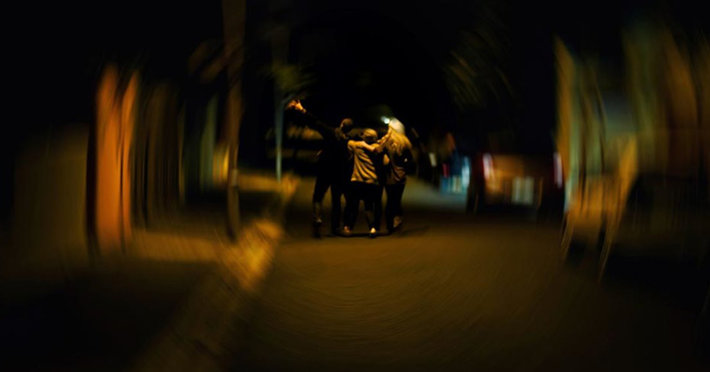The Harmful Effects of Psychedelics

While different psychedelic drugs will affect the user’s body and mind in different ways, all psychedelics have harmful effects. It is concerning that such substances are becoming normalized in regular society. That’s why the best place to begin when trying to prevent further normalization and acceptance of psychedelics is to understand the different types of psychedelics and the adverse side effects of each.
What Are Psychedelics?
Sometimes called hallucinogens, dissociatives, or deliriants, psychedelics refer to a group of drugs that significantly alter awareness, perception, thought, feeling, emotion, cognitive function, etc. While the term “psychedelics” refers to a long list of different types of drugs, the common denominator of all psychedelic drugs is that they cause hallucinations in those who take them. Psychedelics make people see, hear, feel, and otherwise sense things that seem real to them, at that moment, but which are not real. The effects of psychedelic drugs can be so powerful that users may feel disconnected from their body while taking the drug.
Psychedelics come in many different forms. Some are extracted from plants, such as mushrooms or cacti. Others are synthetic, i.e., made in a lab. Psychedelics, particularly the plant-based ones, have been in use for centuries. They used to be common in religious, cultural, and healing rituals. Today, psychedelics have become more of a recreational trend, with young people, in particular, experimenting with the substances the most.
Types of Psychedelics
These are some of the more common psychedelic drugs:
- LSD. LSD is one of the most potent and common psychedelic drugs. LSD stands for “D-lysergic acid diethylamide” and is a transparent or white, odorless material made from lysergic acid. Harmful effects from taking LSD can include altering one’s pain perception, their responses to the environment, emotional response, learning, and memory.
- Psilocybin. Psilocybin refers to certain types of mushrooms that can be found in tropical and subtropical regions of South America, Mexico, and the United States. Psilocybin can alter one’s mood, sensory perception, ability to sleep, appetite, etc.
- Peyote (mescaline). Peyote refers to a small cactus plant that, when processed, can produce hallucinogenic effects. Peyote used to be solely a plant-based drug, but now there are synthetic versions of the drug’s active ingredient, mescaline. Peyote can cause alterations in body temperature, sexual behavior, and intestinal muscle control, to name a few.
- DMT (N,N-dimethyltryptamine). DMT is a powerful chemical used to make Ayahuasca tea. DMT is also now being made synthetically in labs. DMT can lead to increased heart rate, nausea, intensified feelings and perceptions, changes in perception of time, etc.
- Phencyclidine (PCP). PCP was once used as an anesthetic for surgery, but it was abandoned due to its harmful side effects. Now the drug is used illegally as a hallucinogenic. PCP use can lead to increased blood pressure, increased breathing rate, heightened body temperature, loss of appetite, sleep problems, dry mouth, etc.
- Ketamine. Similar to PCP, ketamine is a surgical anesthetic that is still in use today. When misused, it can cause hallucinations. Ketamine use can lead to uncoordinated movements, panic attacks, excessive sweating, and general anxiety.
- Dextromethorphan (DXM). DXM is an over-the-counter cough suppressant that can also cause hallucinations when misused. DXM can cause paranoia, bizarre behavior, and erratic thoughts and actions.
- Salvia. Salvia is a plant common to Mexico, Central America, and South America. The plant is usually dried and smoked to experience hallucinogenic effects from it. Salvia can cause disordered thinking, detachment from reality, persistent disturbances, paranoia, and numbness.

Bad Trips and Flashbacks
Though psychedelics have gained popularity, not enough is said about two critical side effects of psychedelic use that can occur with any psychedelic drug. This is speaking of bad trips and flashbacks.
A bad trip refers to frightening and disturbing hallucinations that one may experience while using psychedelics. When people die from using psychedelics, it is usually the result of a bad trip. That’s because a bad trip can evoke such horrible hallucinations and altered perceptions that it can lead users to run into traffic, fall off a building, or intentionally take their own life.
What makes bad trips especially frightening is there is no way to predict when a bad trip will occur. There is no “secret method” of psychedelic use that can protect one from a bad trip. A bad trip could happen on one’s first experience with psychedelics, or it could occur further down the line. It is a dangerous, totally unpredictable variable.
As for flashbacks, one of the worst side effects of experimenting with psychedelics is something that previous users may not experience until years after using the substance. This is referring to flashbacks, ongoing effects of psychedelic drug use that can crop up at any point in an individual’s life.
A flashback is a literal “re-experience” of a drug. The shocking thing about a flashback is that one could experience a flashback years after having used the drug. A flashback is dangerous. One could use psychedelics in their youth, then be driving down the road a decade later and experience a flashback. The result could be a lethal accident.
A flashback can be triggered by stress, fatigue, or physical exercise. But flashbacks can happen sporadically as well. Like bad trips, there is no way to predict a flashback. That puts psychedelic users at risk, and it puts those around them at risk, too, even when the individual is not actively using a psychedelic drug.
Rehabilitation and Treatment
When one adopts a pattern of experimenting with psychedelic, hallucinogenic, dissociative, and deliriant drugs, they will require professional help in breaking away from such substances. If you know someone who is hooked on psychedelic drugs and cannot seem to quit on their own, please contact Narconon today.
Sources:
- https://www.drugabuse.gov/publications/drugfacts/hallucinogens
- https://adf.org.au/drug-facts/psychedelics/
Reviewed by Claire Pinelli ICAADC, CCS, LADC, RAS, MCAP


